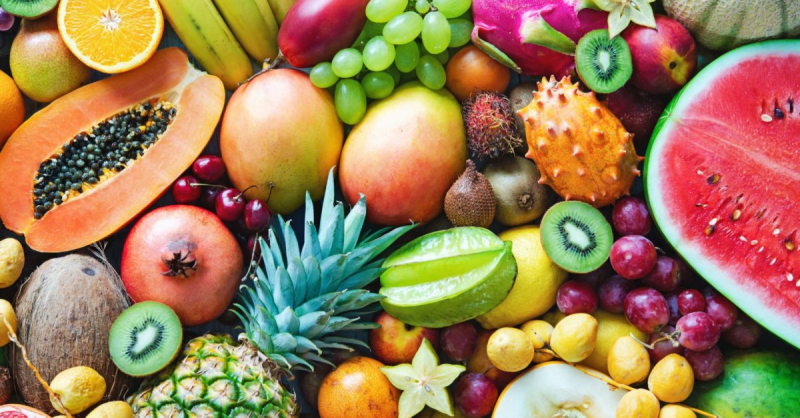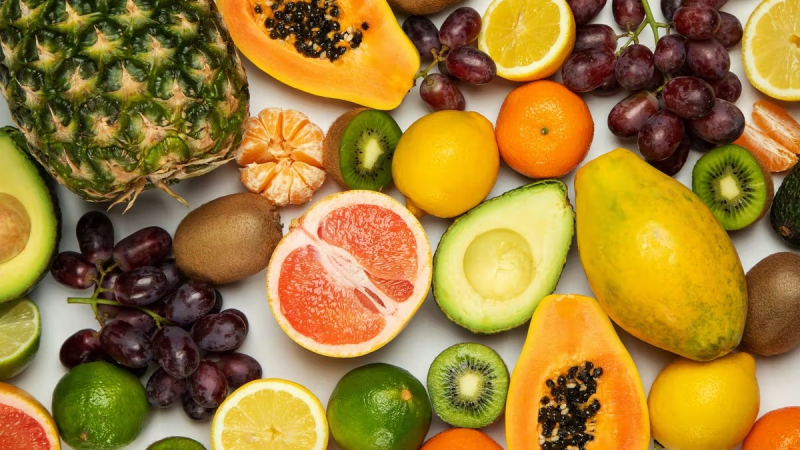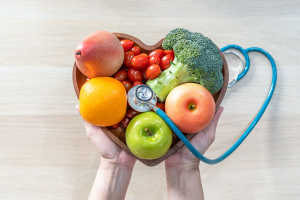Top 5 Myths About the Best Time to Eat Fruit
On the internet, a lot of inaccurate information regarding nutrition is spread. The ideal time to consume fruit is one frequent subject. There are opinions on ... read more...who should never eat fruit, when and how you should consume fruit, etc. Continue reading to find out myths about the best time to eat fruit!
-
When you eat fruits with your meals, your digestion process takes longer and the food takes longer to break down in your stomach. Along with this, it is also said that indigestion, stomach pains, and a variety of other ailments are caused by undigested food.
Fact: Fruits' fiber may slow down the passage of food from your stomach, but its claimed effects are unfounded. Fruits do slow down how quickly food is passed from the stomach into the small intestine, but they do not affect how quickly food is digested in the stomach. In fact, slowing down digestion can have a beneficial impact. Fruits' high fiber content helps you feel fuller for longer and eat fewer calories. No evidence supports the idea that eating fruit on an empty stomach affects longevity, fatigue, or dark circles under the eyes.
Always eat fruit on an empty stomach 
Always eat fruit on an empty stomach -
The best method to ensure that your body absorbs all of the nutrients from fruits is to eat them on an empty stomach. This claim suggests that eating fruits with a meal reduces their nutritional value.
Fact: The ability of the human digestive system to absorb nutrients from food is quite good. When you eat, your stomach only releases a small amount of food at a time to give your intestines the best chance to absorb all the nutrients. Your small intestine is around 6 meters long, which offers it enough length and time to absorb nutrients during digestion. This means that whether you eat fruit with a meal or on an empty stomach, your digestive system is capable of digesting and absorbing the nutrients from fruit, and your digestive system will have no trouble absorbing the nutrients the fruits you eat.

Eating fruit before or after a meal reduces its nutrient value 
Eating fruit before or after a meal reduces its nutrient value -
It is believed that eating fruit separately from meals helps digestion, which is important because patients with diabetes frequently experience digestive issues.
Fact: The only distinction that may be made is that fruit's carbs and sugar may enter the system more quickly, which is exactly what people with diabetes try to avoid. Consider including fruit with a meal or snack rather than eating it alone. Your stomach may release food into the small intestine more slowly when you eat fruit along with food that is high in protein, fiber, or fat. The benefit of this for someone with diabetes is that less sugar is taken at once, which may lead to a smaller rise in blood sugar levels overall. Studies have shown that soluble fiber, which is included in fruit, can reduce the rise in blood sugar after a meal by 25% with just 7.5 grams consumed. Look for fruits with a low glycemic index if you have diabetes because they will cause your blood sugar to rise more gradually. These include most fruits besides melons, pineapple, and dried fruit

If you have diabetes, you should eat fruit 1–2 hours before or after meals 
If you have diabetes, you should eat fruit 1–2 hours before or after meals -
As the day goes on, your digestive system needs to be "reactivated". Around midday, it is thought that your metabolism slows down, and consuming sugary snacks like fruit might elevate your blood sugar levels and "activate" your digestive system.
Fact: Regardless of the time of day, any food containing carbs will temporarily raise blood sugar levels when glucose is absorbed. But other than giving your body nutrition and energy, this has no specific benefits. Your digestive system is always ready to start working as soon as the food touches your mouth, regardless of the time of day. There is no need to "reactivated" your digestive system. And while consuming a meal high in carbs may temporarily lead your body to use carbs as fuel, this does not affect your metabolism rate. It is unwise to take seriously claims that fruit should only be consumed in the morning. Fruits are healthy for you at any time of day.

The best time of day to eat fruit is the morning 
The best time of day to eat fruit is the morning -
Similar to myth number 4, myth number 5 suggests avoiding fruit after 2:00 p.m. It is believed that consuming fruit or any other carb after 2:00 p.m. elevates blood sugar levels, which your body is unable to control before bedtime, causing weight gain.
Fact: When you go to sleep, your body does not go from burning calories to storing them as fat. To keep your body functioning, you must still burn calories. Additionally, there is no proof that eating fruits at specific times of the day affects weight gain. However, there is strong evidence that eating two servings of fruit and lots of vegetables throughout the day is associated with lower fat percentages and a lower risk of weight gain. One of the best things you can do if you want to reduce weight is to substitute "unhealthy" food (i.e: processed food) foods for fruit and vegetables. It is an effective method to get all the nourishment you need while maintaining a healthy calorie intake.
You shouldn’t eat fruit after 2:00 p.m. 
You shouldn’t eat fruit after 2:00 p.m.


























